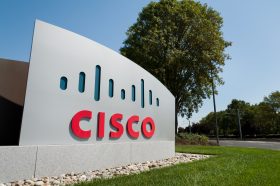Startup Harness Adds Cost Analysis for DevOps

In a move that shows the momentum building in cloud DevOps, a startup named Harness has created an application that tracks the money spent (or wasted) on cloud development.
Harness’ product, Continuous Efficiency, is an addition to its Continuous Delivery platform, which establishes a software pipeline for updating, testing, and delivering cloud-based applications in enterprise environments.
Continuous Efficiency is different from competing cost-tracking apps, says Harness, because it does not require developers to manually tag items for which they need to track costs. Instead, the service lets developers fill in boxes to generate reports on all the resources used in a project.
Package Tags DevOps Pricing -- without the Tags
other Harness platform add-ons, it’s not listed in publicity materials
as free, and Continuous Delivery is a prerequisite.
Since pricing for many of these services is pretty granular (e.g., 10 cents per cluster per hour for GKS), it’s logical that by entering the cost per element per hour or minute into the Harness system, valuable information would emerge. And videos on the vendor’s site show very interesting results, as indicated in the screenshot below (taken from a Harness video):
All this prods the question: Why hasn’t anyone done this before? The answer may be that they have, but in a different way. AWS, for instance, allows developers to estimate costs up front for EC2 , then figure out the most practical amount of resources for a project or application. Of course, this only applies to AWS, not other vendors’ wares, so reporting pricing across the board can get complicated. Combining pricing from multiple resources could be a significant innovation.
DevOps Bandwagon Speeds Into Clouds
Developers hope to minimize the amount of development involved in CI/CD that is based on microservices or containers. As-a-service solutions for CI/CD, such as Harness Continuous Delivery, have naturally emerged from this effort.
All this has fueled a cloud DevOps market that is expected to grow 20% annually through 2026, when it is forecast to reach $15 billion. Included are startups such as CircleCI and CloudBees, as well as larger companies such as IBM’s Red Hat, whose OpenShift solution is part of its “cloud-native development” roster. There also are services from cloud suppliers, including AWS CodePipeline and Microsoft Azure Pipelines. Many other services provide one or more functions of CI/CD for hybrid cloud developers.
Harness Outlook Could Be Good, But…
Harness was founded in 2016 by Jyoti Bansal, who previously founded AppDynamics, an IT application performance and analytics software firm he sold to Cisco for $3.7 billion in 2017. Bansal is also the co-founder of Unusual Ventures, a VC that, with Menlo Ventures, IVP, GV (formerly Google Ventures), and ServiceNow Ventures, helped fund Harness to $85 million so far.
Even with its solid backing, Harness faces competition, which is bound to grow along with the market. CircleCI, for example, also based in San Francisco and founded in 2016, garnered $100 million in Series E funding in April 2020, bringing its total funding to $215 million. Investors include IVP and Sapphire Ventures.
It's interesting to see that Harness and CircleCI share IVP as an investor. It seems to be an indicator of confidence in this particular slice of cloud DevOps, which looks promising for all involved.

















